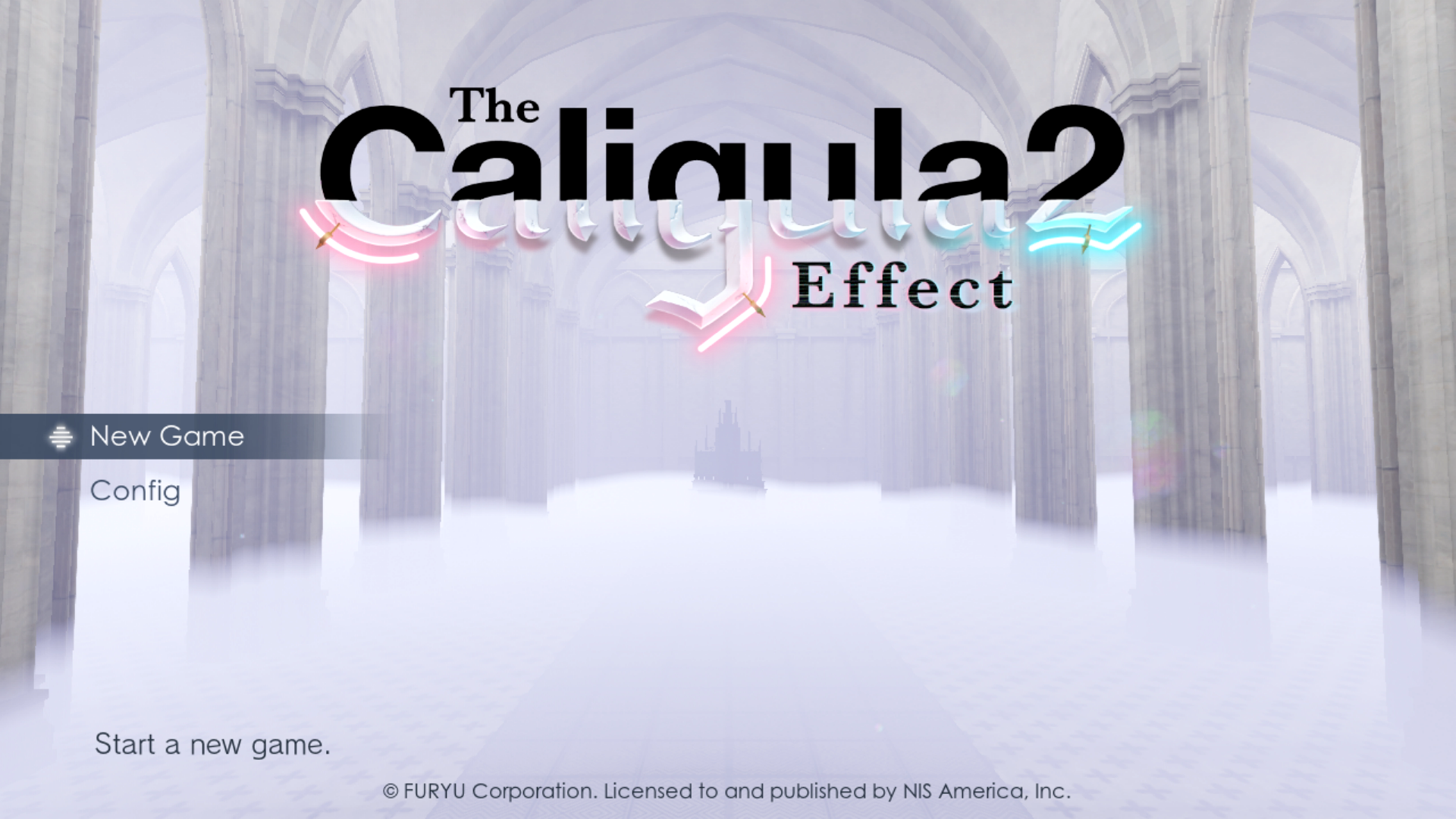The Caligula Effect 2
Caligula: The Guilt And Excitement Of Something One Shouldn't Do
When series director Takuya Yamanaka was asked by the official PlayStation blog what, exactly, 'The Caligula Effect' was, this was his answer. To promote the release of The Caligula Effect: Overdose, in 2019, Yamanaka offered insight to curious players. Behind-the-scenes questions were answered, including how the game world Mobius was created. 2021's The Caligula Effect 2 seeks to continue the philosophies that its predecessor introduced. This time, in an entirely new world, new antagonist, and new conflicts.
The story takes place almost immediately after the first Caligula Effect though the sequel does a good job at explaining its events. In the previous game, an AI named μ (Mu) creates a digital paradise called Mobius. The original intent was to keep those who are ill content with their real lives a place to live out their preferred realities. The protagonist, along with others, starts a faction known as the "Go-Home Club" in which they go against Mu and destroy Mobius.
Fast forward to The Caligula Effect 2 and a new AI known as Regret enters the scene. Much like Mu before her, she creates the virtual world, Redo, as a way to preserve humanity's happiness. One of its residents happens to be the protagonist, who is introduced to another AI known as Χ (Chi). Chi reveals herself to be the daughter of Mu, who is currently repenting her actions in the previous game. Fearing for her mother's well-being, she seeks out the protagonist to end Regret's reign. This isn't done to "stop Regret from repeating the same mistakes as Mu." Chi does this so humanity can stop blaming Mu for actions that have nothing to do with her.

The Caligula Effect 2 Is Meant To Be A Clean Slate
While The Caligula Effect 2 serves as a "direct" sequel from the first game, it's not required to play it to enjoy this one. Everything mentioned above is explained by Chi and the antagonists early on. For most JRPGs that serve as sequels, very little knowledge is needed to enjoy the experience. Most sequels that serve as "stand-alone" titles continue the experience of the former with newer characters.
Those who have played the previous titles will get more mileage out of the references made and Caligula Effect 2 is no different. Both protagonists suffer through similar "awakening" sequences upon realizing that the world they live in isn't real. After going through their existential crises, the protagonists are approached by their respective companion AIs.
From here, they are encouraged to unleash their emotions through Catharsis which is done by answering several prompts. What was always amusing about this segment was that this was a way for players to give their protagonist a backstory. The reasoning behind their "escape from real life" can range from insecurities, family issues, and everything in between. Unfortunately, none of these prompts matter as the result is the same. The protagonist's powers are activated the same way and a tutorial battle ensues. For my protagonist, I made her into a yandere because why the heck not?

Battles Are Determined By A Probability And Movie Making Skills
Combat in The Caligula Effect 2 is similar to the first game down to its unique gameplay mechanics. The only difference is that rather than dual-wielding revolvers, the protagonist in the sequel wields two daggers instead. Gameplay is different from most traditional RPGs as the action happens in "real-time." The player determines the results of each round beforehand by envisioning the proposed results before they happen. Using a timeline akin to movie-making programs, the player can analyze an action and how it would affect the party.
An example would be using a basic attack, delaying and adjusting the timeline, and trying to get the best possible result. The ideal result deals the most damage to the opponent, less damage to the party, and uses as few resources as possible. Once the player finds a result that better suits the party, the player can act out the timeline. This sounds more complicated than it is. The best comparison I can make is similar to strategy games where you plan your next move. Once players get the hang of Caligula Effect's combat, it's a fun alternative to traditional turn-based gameplay.

The Caligula Effect 2 Is All In The Mind
There are potential allies that will be down with the protagonist's cause in wanting to break free from the chains. What's disappointing is the tease that the protagonist has a choice in staying in Redo. This is followed by a reminder that Chi is soulbound to the protagonist, meaning if something happens to one, the other will perish. Regardless, these potential allies may have conflicting views on their current situation. Some may decide to tease the idea of staying in Redo, taking the "blue pill" as it's better than their previous life.
These same themes present themselves in the original Caligula Effect too. Is it wrong for an AI to rid others of suffering by making a dream world? Is it also wrong for those same people to stay in such a reality if it means escaping the problems of the real world? Other games presented these same questions, but there's no "right or wrong" answer. What makes The Caligula Effect 2 great when the previous game's context is known is that the player already knows what it's like when this idealism fails.

Are Video Games A Cheaper Alternative To Psychology Classes?
It's akin to reading a book, seeing how it ended, then reading the second book that follows a similar plot expecting it not to end as the first book did. It's interesting to see how the new cast of Caligula Effect 2 will squirm their way out of this scenario. This prevents the sequel from being "more of the same," as it shines a spotlight on those who don't learn from the mistakes of the past.
I'd recommend playing The Caligula Effect Overdose first before indulging in its sequel. The messages presented in the sequel will be more poignant that way. It's a coincidence that two games that reflect on the heart and the mind were released around the same time. Even more, both games are sequels. Both Caligula Effect 2 and Blue Reflection Second Light share similar themes and psyches of the mind and heart. Perhaps video games can be philosophical and offer deep thinking beyond what most consider from the medium after all.

The Caligula Effect 2 is available on the PS4 and Switch.

